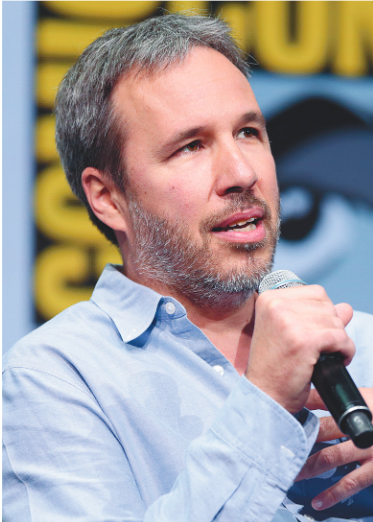
Denis Villeneuve -WikiCommons
David Prendeville
The landscape for cinema exhibition remains very uncertain in the early months of 2021. I have covered in this paper the impact Covid-19 has had on film productions and exhibitors. Despite the hope of vaccines on the horizon, it remains to be seen when a return to some form of normality for cinemas is likely, and quite what Hollywood studios are likely to do with the stack of tentpoles awaiting release, carrying over from 2020.
Arguably, the biggest development in this on-going story occurred in December, when Warner Bros made the announcement that they were going to release all of their huge 2021 slate (many roll-overs from 2020) simultaneously in cinemas (in territories where they’re open) and on the US streaming platform HBO Max. This followed in the wake of their initial announcement that their eagerly anticipated, mammoth-budgeted Wonder Woman 1984 would be released in this manner. While one film was one thing, the news that Warners were going to adopt this strategy for all of their 2021 releases sent ripples throughout the industry. Some of the films on the studios slate for this period include: Dune, Kong Vs Godzilla, The Suicide Squad and The Matrix 4.
Some people have reacted positively to the news, suggesting that it was a pragmatic approach that gave cinemas that are open films to show, while also allowing the films to reach mass audiences. Most analysts were critical of the decision, however, unsure of the long-term effects such an approach could have. Warners have said this strategy is for 2021 only, as we hopefully pass through the pandemic and on to the other side. But what effect would this have on viewer tastes? If this method proves successful, will it be so easy to turn things back, and go back to the exclusively theatrical distribution model?
While the decision does have some merits, it seems, from the studio’s point of view, there are practical problems it will almost certainly run into, the most notable being piracy. The very day the film becomes available on HBO Max, it is likely high-quality pirate versions will be uploaded online. The risk of piracy is further compounded by the fact that HBO Max is currently only available in the States. Are impatient customers in territories in which neither cinemas are open nor HBO Max is available going to be tempted into piracy? And that’s a best case scenario as to the profile of those likely to pirate. The easy availability of these titles on pirate sites seems certain to make an impact on the films’ takings.
Since making the announcement, Warners have also had to face the wrath of some of their bigger players. Christopher Nolan said of the news: “Some of our industry’s biggest filmmakers and most important movie stars went to bed the night before thinking they were working for the greatest movie studio and woke up to find out they were working for the worst streaming service. Warner Bros had an incredible machine for getting a filmmaker’s work out everywhere, both in theaters and in the home, and they are dismantling it as we speak. They don’t even understand what they’re losing.”
Those were surprisingly disparaging words from a key film-maker in their army of collaborators. Denis Villeneuve, director of the highly-anticipated new adaptation of Dune, has also chimed in against the decision on an artistic basis. Perhaps, a less interesting aspect of this story is the unforeseen legal ramifications it could have for Warners from the creatives involved in the film. Reports suggest this news opens up a whole world of complications with regards to residuals and other profit sharing measures for directors, actors, writers etc involved in the projects.
Given the current state of the world, it’s hard to have much sympathy for these already vastly well paid people. However, it does seem odd and shortsighted once more, if reports are to be believed that Warners didn’t consult any of these personnel prior to making the announcement. The vigour of the responses such as that of Nolan’s certainly suggest he was taken by surprise by the news. He further added: “There’s such controversy around it, because they didn’t tell anyone. In 2021, they’ve got some of the top filmmakers in the world, they’ve got some of the biggest stars in the world who worked for years in some cases on these projects very close to their hearts that are meant to be big-screen experiences. They’re meant to be out there for the widest possible audiences… And now they’re being used as a loss-leader for the streaming service – for the fledgling streaming service – without any consultation.”
The other key player in all this, is of course the cinemas themselves. There have been some murmurs of representatives emphasising the need for a theatrical exclusivity window, but the noise from exhibitors has for the most part been quiet. To cinephiles, they however, remain the most important player in this situation. It is imperative that cinemas survive the pandemic or else a very important cultural experience will have died. In terms of the Warner Bros and the other studios it would be wonderful if this disruption and these disputes could lead to the sort of fissures that lead to the New Hollywood era in the late 60s and 70s. An era in which sophisticated films were also the big films, rather than the cookie-cutter, superhero nonsense that pollutes the mainstream cinema these days. It’s hard to imagine exactly how such a thing could occur. Perhaps if the new relationship between theatrical exhibition and streaming meant it was less value for money to spend big on these superhero tent-poles, and more of a focus was put on mid-budget films. It’s a long shot, but one can hope. One needs any hope they can get in this current moment in time.



